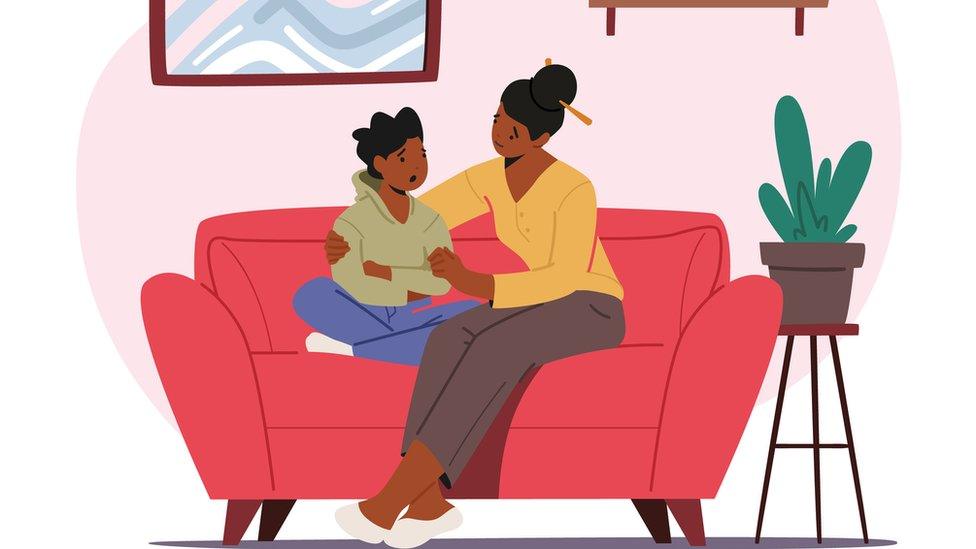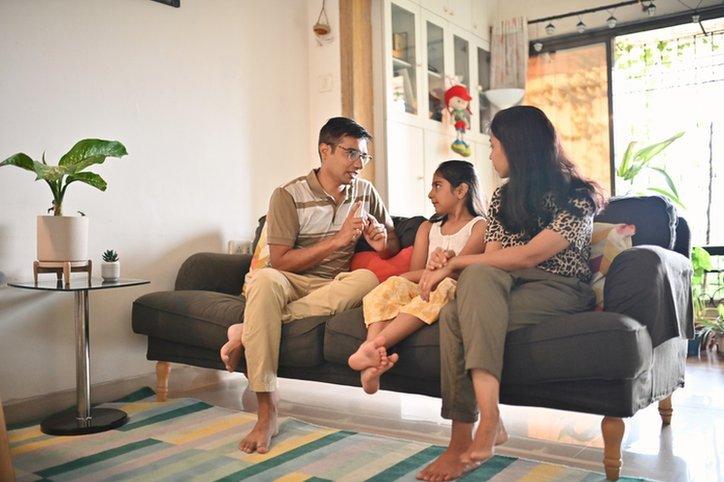Cost of living: Advice if you are worried about rising costs
- Published
- comments

Hearing about problems with money at home or in the news can be confusing and worrying.
If there have been changes to your life because your family has less money at the moment, it's OK to feel concerned, or upset about it.
Newsround have spoken to some organisations and people about this and here are also some really simple things you can do to help.
Talk to someone
Firstly, it's important to talk to someone about how you're feeling.
This could be a teacher, trusted adult at school, a family member, or a friend.
Talking to someone can help you understand exactly why things are changing and can make the situation feel less scary.
There might be something practical they could do to help.
Stevie Goulding, Parents' Helpline Manager at leading mental health charity, YoungMinds, says:
"Find someone you trust and let them know how you're feeling.
"If you decide to talk to a parent or carer, you might want to understand how financial pressures are likely to affect your family over the next few months, so you can think about the support you might need.
"It's important to be honest and let them know if you find too much conversation about this topic at home difficult, so you and they can look after your wellbeing,"
Try not to take on adult worries

As a child, you aren't responsible for adult matters, and even if you're being told what you can and can't do because your parents or guardians are trying to save money, this isn't because you've done anything wrong.
Most parents just want the best for their children and having to make savings will be as difficult for them as it is for you.
It is important to remember that the adults in your life have other people that they can go to if things are getting hard for them with money," says psychologist Dr Abigail Miranda at the Anna Freud Centre.
"If you are starting to feel responsible for money in your house, please do reach out to an adult to talk to about this," she adds.
Jo Miskin, Parent Talk manager at Action for Children, says: "If you're worrying about the cost of living it would be good to try and think about the things you can control and the things that you can't control.
"You can't control what bills need to be paid for, or how much food is going to cost in the supermarket but you can try things like remembering to turn a light off when leaving a room, or not to leave taps running."
Look out for others

Next, it's likely lots of people will be going through similar experiences and even if you haven't been affected personally, there may be someone in your life who has been impacted.
This is a good time to look out for your friends and other people you might know.
Dr Abigail says: "There might be children in your class, school, or community whose families are struggling with money. It can make us feel sad when people we know and care about are finding things hard.
"Some small things you can do to help are to be considerate when talking about presents or other things you have been bought. You can think about the things you no longer need, like toys or clothes, that could be given to someone else."
Don't suffer alone

And finally, if you feel the cost of living crisis is affecting your health and wellbeing, be sure to tell someone as soon as possible or contact an organisation like Childline.
You can get in touch with Childline to speak with one of their trained counsellors confidentially about anything that is worrying or upsetting you.
This can be over the phone on 0800 1111 or online at childline.org.uk, external.
NSPCC
Family Action
Action for Children
CAP
Young Minds
Childrens Society
Young Carers Development Trust (YCDT)
Citizens Advice
